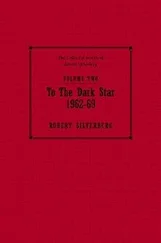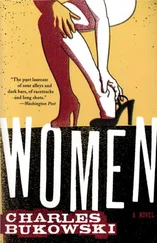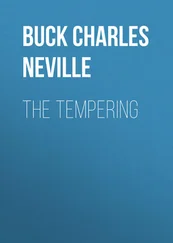Charles Buck - When 'Bear Cat' Went Dry
Здесь есть возможность читать онлайн «Charles Buck - When 'Bear Cat' Went Dry» — ознакомительный отрывок электронной книги совершенно бесплатно, а после прочтения отрывка купить полную версию. В некоторых случаях можно слушать аудио, скачать через торрент в формате fb2 и присутствует краткое содержание. ISBN: , Издательство: Иностранный паблик, Жанр: foreign_language, foreign_antique, foreign_prose, на английском языке. Описание произведения, (предисловие) а так же отзывы посетителей доступны на портале библиотеки ЛибКат.
- Название:When 'Bear Cat' Went Dry
- Автор:
- Издательство:Иностранный паблик
- Жанр:
- Год:неизвестен
- ISBN:http://www.gutenberg.org/ebooks/34057
- Рейтинг книги:5 / 5. Голосов: 1
-
Избранное:Добавить в избранное
- Отзывы:
-
Ваша оценка:
- 100
- 1
- 2
- 3
- 4
- 5
When 'Bear Cat' Went Dry: краткое содержание, описание и аннотация
Предлагаем к чтению аннотацию, описание, краткое содержание или предисловие (зависит от того, что написал сам автор книги «When 'Bear Cat' Went Dry»). Если вы не нашли необходимую информацию о книге — напишите в комментариях, мы постараемся отыскать её.
When 'Bear Cat' Went Dry — читать онлайн ознакомительный отрывок
Ниже представлен текст книги, разбитый по страницам. Система сохранения места последней прочитанной страницы, позволяет с удобством читать онлайн бесплатно книгу «When 'Bear Cat' Went Dry», без необходимости каждый раз заново искать на чём Вы остановились. Поставьте закладку, и сможете в любой момент перейти на страницу, на которой закончили чтение.
Интервал:
Закладка:
So it happened logically enough that on the evening of Jerry's arrival, Kinnard Towers mounted and started out over the hill trails. He rode, as he always did when he went far abroad, under armed escort since tyrants are never secure. Four rifle-equipped vassals accompanied him; two riding as advance guard and two protecting the rear.
Kinnard's destination was the house of Lone Stacy on Little Slippery, a house whose threshold he could not, in the old days, have crossed without blood-letting; but these were the days of peace.
Arriving, he did not go direct to the door and knock, but discreetly halting in the highway, lifted his voice and shouted aloud, "Halloo! I'm Kinnard Towers an' I'm a-comin' in."
The door was thrown promptly open and Lone Stacy appeared, framed between threshold and lintel, holding a lamp aloft and offering welcome.
"Gentlemen," said the host in a matter-of-fact voice, "ef you'll excuse me, I'll rest yore guns."
Then in observance of a quaint and ancient ceremonial, each armed guardian passed in, surrendering his rifle at the threshold. In retarded Appalachia so runs the rule. To fail in its fulfilment is to express distrust for the honesty and ability of the householder to protect his guests, and such an implication constitutes a grave discourtesy.
Inside a fire roared on the hearth, for even in June, the mountain nights are raw.
Henderson, watching the small cavalcade troop in, smiled inwardly. He was not unmindful of the identity or the power of this modern baron, and he was not without suspicion that he himself was the cause of the visit.
"I chanced ter be farin' by, Lone," Kinnard Towers enlightened his host easily, "an' I 'lowed I'd light down an' rest a little spell."
"Ye're welcome," was the simple reply. "Draw up ter ther fire an' set ye a cheer."
The talk lingered for a space on neighborhood topics, but the host had found time, between hearing the shout outside and replying to it, to say in a low voice to his guest: "I reckon atter Kinnard Towers comes in we won't talk no more erbout my still – jest stills in gin'ral," and that caution was religiously observed.
The kitchen tasks had been finished now and while the men sat close to the smoking hearth the faces of the women looked on from the shadowed corners of the room, where they sat half obscured upon the huge four-poster beds.
The man who had crossed Cedar Mountain lighted his pipe from the bed of coals and then, straightening up, he stood on the hearth where his eyes could take in the whole semicircle of listening faces. They were eyes that, for all their seeming of a theorist's engrossment, missed little.
This house might have been a pioneer abode of two hundred years ago, standing unamended by the whole swelling tide of modernity that had passed it by untouched.
The leaping blaze glittered on the metal of polished rifles stacked in a corner, and on two others hanging against the smoke-dimmed logs of the walls. Red pods of peppers and brown leaves of tobacco were strung along the rafters. Hardly defined of shape against one shadowy wall, stood a spinning wheel.
Henderson knew that the room was pregnant with the conflict of human elements. He realized that he himself faced possibilities which made his mission here a thing of delicate manipulation; even of personal danger.
The blond man with the heavy neck, who sat contemplatively chewing at the stem of an unlighted pipe, listened in silence. He hardly seemed interested, but Henderson recognized him for the sponsor and beneficiary of lawlessness. He more than any other would be the logical foe to a new order which brought the law in its wake – and the law's reckonings.
Near to the enemy whom he had heretofore faced in pitched battle, sat old Lone Stacy, his brogans kicked off and his bare feet thrust out to the warmth; bearded, shrewd of eye, a professed lover of the law, asking only the exemption of his illicit still. He, too, in the feud days had wielded power, but had sought in the main to wield it for peace.
And there, showing no disposition to draw aside the skirts of his raiment in disgust, sat the preacher of the hills whose strength lay in his ability to reconcile antagonisms, while yet he stood staunch, abating nothing of self-sacrificial effort. It was almost as though church and crown and commoner were gathered in informal conclave.
But luminous, like fixed stars, gleamed two other pairs of eyes. As he realized them, Henderson straightened up with such a thrill as comes from a vision. Here were the eyes of builders of the future – agleam as they looked on the present! Blossom's were wide and enthralled and Turner Stacy's burned as might those of a young crusader hearing from the lips of old and seasoned knights recitals of the wars of the Sepulchre.
Bear Cat Stacy saw in this stranger the prophet bearing messages for which he had longed – and waited almost without hope. But Kinnard Towers saw in him a dangerous and unsettling agitator.
"You said," declared Henderson, when the theme had swung back again to economic discussion, "that your cornfield was good for a few crops and then the rains would wash it bare, yet as I came along the road I saw an out-cropping vein of coal that reached above my head, and on each side of me were magnificent stretches of timber that the world needs and that is growing scarce."
"Much profit thet does me," Lone Stacy laughed dryly. "Down at Uncle Israel's store thar's a dollar bill thet looks like hit's a-layin' on ther counter – but when ye aims to pick hit up ye discarns thet hit's pasted under ther glass. Thet coal an' timber of mine air pasted ter ther wrong side of Cedar Mounting."
"And why? Because there are few roads and fewer schools. It's less the cost and difficulties of building wagon roads than something else that stands in the way. It's the laurel."
"The laurel?" repeated Lone Stacy, but the preacher nodded comprehendingly, and the visitor went on:
"Yes. The laurel. I've been in Central American jungles where men died of fever because the thick growth held and bred the miasma. Here the laurel holds a spirit of concealment. If there wasn't a bush in all these hills big enough to hide a man, the country would be thrown open to the markets of the world. It's the spirit of hiding – that locks life in and keeps it poor."
"I presume ye means on account of ther blockade licker," replied the host, "but thet don't tech ther root of ther matter. How erbout ther fields thet stand on end; fields thet kain't be plowed an' thet ther rains brings down on yore head, leavin' nuthin 'thar but ther rock?"
Henderson had the power of convincing words, abetted by a persuasive quality of voice. As a mountain man he preached his faith in the future of the hills. He spoke of the vineyards of Madeira where slopes as incorrigibly steep as these were redeemed by terracing. He talked of other lands that were being exhausted of resources and turning greedy eyes upon the untapped wealth of the Cumberlands. He painted the picture glowingly and fervently, and Turner Stacy, listening, bent forward with a new fire in his eyes: a fire which Kinnard Towers did not fail to mark.
"When ther railroad taps us," interpolated Lone Stacy, in a pause, "mebby we kin manage ter live. Some says ther road aims ter cross Cedar Mounting."
"Don't deceive yourself with false hopes," warned the visitor. "This change must be brought about from inside – not outside. The coming of the railroad lies a decade or two away. I've investigated that question pretty thoroughly and I know. The coal-fields are so large that railroads can still, for a long time to come, choose the less expensive routes. Cedar Mountain balks them for the present. It will probably balk them for the length of our lives – but this country can progress without waiting for that."
Читать дальшеИнтервал:
Закладка:
Похожие книги на «When 'Bear Cat' Went Dry»
Представляем Вашему вниманию похожие книги на «When 'Bear Cat' Went Dry» списком для выбора. Мы отобрали схожую по названию и смыслу литературу в надежде предоставить читателям больше вариантов отыскать новые, интересные, ещё непрочитанные произведения.
Обсуждение, отзывы о книге «When 'Bear Cat' Went Dry» и просто собственные мнения читателей. Оставьте ваши комментарии, напишите, что Вы думаете о произведении, его смысле или главных героях. Укажите что конкретно понравилось, а что нет, и почему Вы так считаете.












